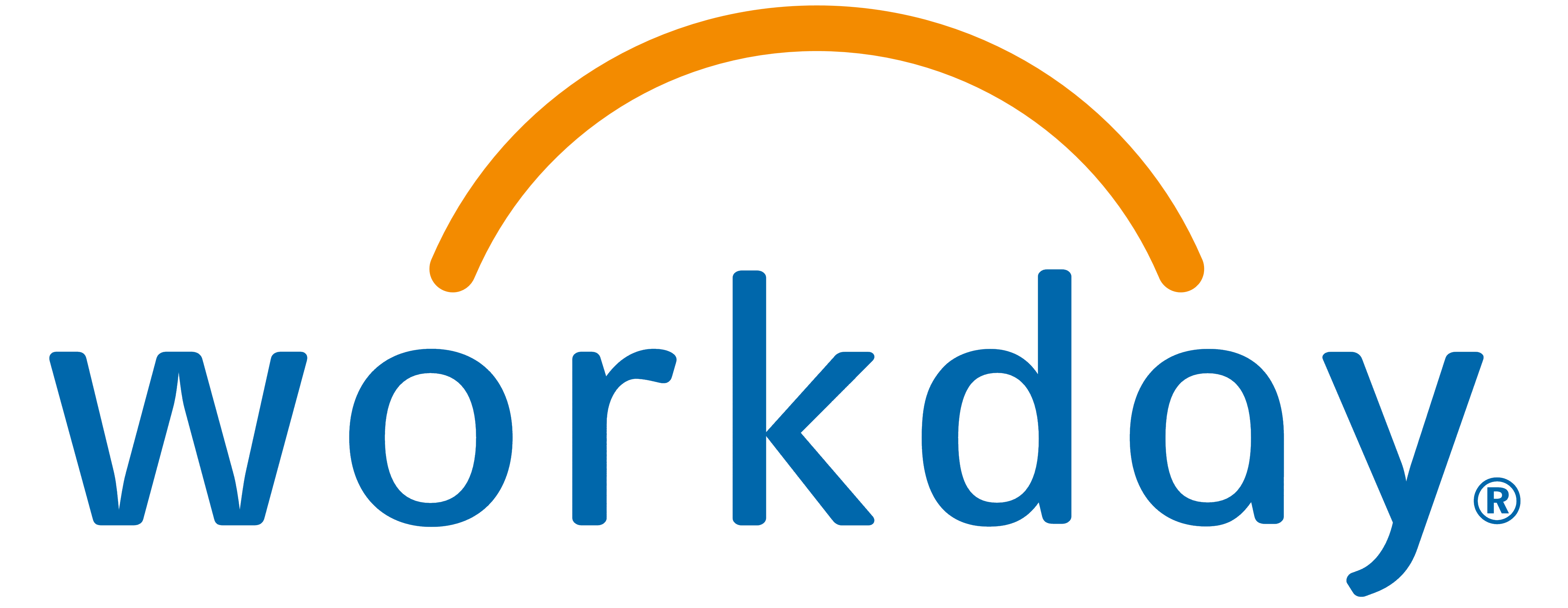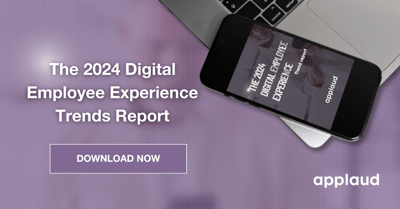Since 2019, the focus on employee experience (EX) has risen to the top of the agenda for many CHROs. Organizations have faced unprecedented challenges, from the global pandemic and the Great Resignation to economic pressures.
This has brought employee experience to the forefront, with evidence showing that even minor improvements in EX can lead to a more productive, efficient, and happier workforce. This, in turn, increases sales and bolsters the bottom line.
Chapters:
- Why invest in an Employee Experience Platform (EXP)?
- How to choose the best EXP
- The 6 best Employee Experience Platforms of 2023:
- Applaud
- ServiceNow
-
- Microsoft Viva
- Neocase
- Workday
- Oracle HCM Cloud
- What organizations with an EXP say
- Conclusion
 Your Guide To: Employee Experience Platforms (EXP)
Your Guide To: Employee Experience Platforms (EXP)
Read Josh Bersin's report to learn more about the EXP market and it's future, what to look for in an EXP and how companies are using them to transform their employee experience. Read Now.
Why Invest in an EXP?
An Employee Experience Platform (EXP) is a comprehensive solution that combines technology, tools, and services to improve employee engagement, productivity, and retention.
Here are some reasons why HR should consider investing in an EXP:
- Improving employee satisfaction and engagement: An EXP provides employees with a user-friendly interface and tools that enable them to access and manage their HR-related tasks and benefits easily. This, in turn, improves their overall experience and engagement with the company. A Gallup study found that highly engaged teams show 23% greater profitability.
- Enhancing employee productivity and HR efficiency: Streamlining HR processes reduces administrative burdens, allowing employees to focus on core responsibilities. According to new McKinsey research, getting this wrong could cost a median-size S&P 500 company between $228 million and $355 million a year in lost productivity.
- Boosting employee retention: By providing a positive and seamless employee experience, an EXP can lower turnover rates. Deloitte reports that companies with strong EX see 30-50% higher employee retention.
- Supporting HR decision-making: An EXP provides HR professionals with data and analytics that can help them make informed decisions about employee engagement, retention, and productivity. This data can also be used to identify potential issues and areas for improvement.
- Simplifying compliance: An EXP can help ensure compliance with HR policies, labor laws, and regulations by automating and centralizing HR processes. This can reduce the risk of errors, penalties, and legal issues.
How to Choose the Best EXP
Before choosing the right platform for your organization, it’s worth spending some time considering your needs. Here are some key factors to consider:
- Determine your needs: Identify your organization's specific needs, including the size of your organization, the complexity of your HR processes, the types of data you need to collect and analyze, and your budget.
- Look for user-friendly features: The platform should be easy for your employees to use, with intuitive navigation, personalized content, and mobile accessibility to ensure high engagement.
- Consider data collection and analysis: Look for a platform that provides robust data collection and AI-powered analysis capabilities.
- Ensure integration capabilities: The platform should integrate seamlessly with your existing HR systems and other business applications to streamline processes and minimize data entry errors.
- Check for security and compliance: Choose a platform that includes features such as role-based access control, data encryption, and compliance with industry regulations such as GDPR and HIPAA.
- Look for flexibility and scalability: The platform should be able to grow and adapt with your business, offering customization options, scalability, and the ability to add or remove features as needed.
- Consider customer support: Ensure the vendor provides strong customer support, including online training resources, support, and a dedicated success manager to help you get the most out of the platform.
Watch Josh Bersin weigh up the benefits of employee experience platforms in the webinar below.
The 6 Best Employee Experience Platforms of 2024
1. Applaud

Overview: Applaud is a cloud-native Employee Experience Platform that empowers HR and business leaders to enhance EX and build digital experiences that save time and drive efficiencies. Applaud's suite is designed to provide a seamless, personalized experience for every employee, leveraging AI to deliver these benefits. Built for HR and loved by employees, Applaud ensures that the needs of the HR team are front and center while providing a user-friendly experience for employees.
Key Features:
- HR Portal: Applaud's HR portal offers a personalized, branded user experience across all devices, supporting over 40 languages and ensuring accessibility compliance. Custom branding, mobile access, and single sign-on are some of its standout features.
- Knowledge Management: Centralized and AI-driven knowledge hubs provide accurate, up-to-date information and insights into employee needs. This includes AI search and content personalization based on user profiles.
- AI Assistant: A generative AI-powered assistant handles HR queries instantly, integrated with various communication channels like Slack and Teams. This reduces HR caseload and improves employee productivity.
- Journeys: Automated and personalized employee journeys enhance critical moments such as onboarding and promotions. The journey widget and feedback integration ensure a smooth transition through various employee lifecycle stages.


- Case Management: Efficient, AI-powered case management streamlines HR processes, reducing workload and improving response times.
- Creator Platform: A no-code platform that allows HR to design and implement digital experiences without IT dependency. It includes powerful workflow tools and customizable templates.
 Strengths:
Strengths:
- Comprehensive suite covering all aspects of employee experience.
- Strong AI integration for personalized and efficient service delivery.
- Highly customizable and scalable.
Weaknesses:
- As a smaller vendor compared to some tier 1 solutions, Applaud is continuously innovating to establish itself as a leader in the market.
- Generative AI is deeply integrated into the product, making it ideal for companies embracing AI for success rather than as a separate bolt-on.
💡 Why Applaud?
Applaud's integration of AI across its suite enhances productivity, reduces HR workload, and offers a personalized experience that adapts to each employee's needs.
2. ServiceNow

Overview: ServiceNow’s HR Service Delivery product provides an enhanced employee experience with a unified destination to manage work needs while hiding cross-departmental complexity. With its roots in IT service management (ITSM), ServiceNow is often owned by IT departments, which can mean HR influence is secondary.
Key Features:
- Employee Journey Management: Helps employees navigate journeys, listen to feedback, and provide learning.
- Employee Center: A single unified portal for multi-department service delivery.
- Enterprise Onboarding and Transitions: Ensures smooth experiences across key employee lifecycle moments.
- Now Platform: Build and extend apps that power digital transformation.
Strengths:
- Strong service delivery and integration capabilities.
- Robust platform for managing complex HR processes.
- Extensive customization options.
Weaknesses:
- Complex implementation and management.
- Often owned by IT with complex back-end screens, which may not suit an HR audience or those looking for a consumer-grade user experience.
💡 Why ServiceNow?
ServiceNow excels in creating a cohesive service delivery environment that integrates IT and HR needs, making it a strong choice for organizations who favour a single customer and employee service platform over HR-specific needs.
3. Microsoft Viva

Overview: Microsoft Viva integrates with Microsoft 365 and Teams to enhance communication, learning, and insights within organizations. While primarily owned by IT departments, it aims to bring together various elements of employee experience through familiar Microsoft tools.
Key features:
- Viva Connections: Centralizes communication and organizational resources.
- Viva Insights: Provides data-driven insights into workplace activities to improve productivity.
- Viva Learning: Brings learning content directly into Microsoft Teams.
- Viva Topics: Uses AI to organize content and improve knowledge discovery.
- Microsoft Copilot: Generative AI-powered assistant to streamline Windows, Office and Teams interactions
Strengths:
- Seamless integration with Microsoft 365 and Teams.
- Strong focus on communication and learning.
- Utilizes AI for enhanced content organization and insights.
Weaknesses:
- Best suited for organizations already using Microsoft ecosystems.
- Microsoft Copilot is primarily a tool for Windows, Office, and Teams, which may not fully address HR use-cases.
💡 Why Microsoft Viva?
Microsoft Viva leverages existing Microsoft tools, making it ideal for companies already using Microsoft ecosystems to enhance employee engagement and productivity.
4. Neocase

Overview: Neocase offers a comprehensive HR Service Delivery platform focused on automation and employee self-service. Known for its strong case management capabilities, Neocase may not prioritize new innovations and user experience as much as newer vendors like Applaud.
Key features:
- Case Management: Streamlines HR case resolution with automated workflows.
- Knowledge Base: Provides employees with easy access to HR information.
- Employee Portal: A centralized hub for HR services and information.
- Analytics and Reporting: Offers insights into HR service performance and employee needs.
Strengths:
- Strong focus on automation and self-service.
- Comprehensive case management and knowledge base capabilities.
Weaknesses:
- May require significant customization for specific organizational needs.
- Potential lag in innovation and UX enhancements compared to newer, more agile platforms.
💡 Why Neocase?
Neocase stands out for its strong focus on automation and self-service, helping organizations reduce HR workload and improve service delivery efficiency.
5. Workday

Overview: Workday is renowned for its comprehensive HCM suite, integrating HR, payroll, talent management, and more. It provides a unified approach to managing various HR functions.
Key features:
- Unified HCM: Combines HR, payroll, talent, and workforce management in a single system.
- Analytics: Provides deep insights into workforce data.
- Employee Self-Service: Empowers employees to manage their own HR tasks.
- Mobile Accessibility: Ensures employees can access HR services from anywhere.
Strengths:
- Comprehensive and integrated approach to HR management.
- Strong analytics and reporting capabilities.
- Journeys and helpdesk capabilities integrated with rest of HCM.
Weaknesses:
- Patchy employee experience functionality compared with others, eg, knowledge & portal
- Tends to prioritize its own ecosystem, which means it doesn’t always integrate smoothly with other systems commonly used in enterprise organizations. This can make it less effective as a central hub for HR needs in practice.
💡 Why Workday?
Workday's robust HCM suite makes it a versatile solution for organizations looking to integrate various HR functions into a single platform.
6. Oracle HCM Cloud

Overview: Oracle HCM Cloud is a comprehensive suite that integrates various HR functions, offering strong customization and analytics capabilities. It focuses on providing a unified and intelligent solution for managing the entire employee lifecycle.
Key features:
- Comprehensive HCM Suite: Integrates HR, talent management, payroll, and workforce management.
- AI and Machine Learning: Enhances decision-making with predictive analytics and AI-driven insights.
- Employee Experience: Provides personalized, mobile-friendly interfaces for employees to manage their HR tasks.
- Global HR: Supports multinational operations with robust global compliance features.
Strengths:
- Strong integration of classic AI and machine learning for enhanced analytics and decision-making.
- Comprehensive suite covering all HR functions.
- Robust global compliance capabilities.
Weaknesses:
- Can be complex to implement and manage.
- Higher cost compared to some other EXPs.
💡 Why Oracle HCM Cloud?
Oracle HCM Cloud's strong AI and machine learning capabilities, combined with its comprehensive suite of HR functions, make it an excellent choice for organizations looking to leverage advanced technology to enhance their employee experience.
What do organizations who've adopted an EXP say?
Businesses deploying Employee Experience Platforms often do so to resolve a particular issue they have. This could be problems with onboarding, encouraging employees to self-enter details or lack of accessibility on mobile.
Here's how some of them benefitted:
 “Applaud’s cutting edge mobile and desktop interfaces are a refreshing user-friendly change that encourage our associates to engage with their own data.”
“Applaud’s cutting edge mobile and desktop interfaces are a refreshing user-friendly change that encourage our associates to engage with their own data.”
- Robert Reiling, National Director EBS Systems and BI, Advantage Solutions. Read case study.
![]() “Applaud have helped to transform our People Services. Since the Applaud implementation, the enhanced experience continues to prompt positive feedback from our staff and ROI has been delivered to our organization.”
“Applaud have helped to transform our People Services. Since the Applaud implementation, the enhanced experience continues to prompt positive feedback from our staff and ROI has been delivered to our organization.”
- Jackie Noorden, People Operations Director, National Trust
Read case study.
Conclusion
Selecting the right Employee Experience Platform can transform your organization's HR capabilities, improving engagement, productivity, and retention.
Platforms like Applaud, with its comprehensive suite powered by genAI, offer advanced solutions tailored to modern workplace needs.
By considering your organization's specific requirements and the unique features of each platform, you can choose an EXP that drives meaningful improvements and supports your business goals.
For more information on Applaud and to see how it can elevate your employee experience, book a demo today.
Want the big picture on Digital Employee Experience?
Get the tools and industry insights to embrace generative AI's transformative power with confidence, helping you craft a strong business case for adoption. Download the 2024 Digital Employee Experience Trends Report today.
 About the Author
About the Author 
As Co-founder and CTO of Applaud, Duncan Casemore leverages 15+ years in HR technology to develop AI-driven solutions that simplify processes and enhance EX. His expertise spans roles at Oracle, Xerox and successful HR consultancy. At Applaud, he focuses on making HR services accessible, driving efficiency, and boosting employee satisfaction.



